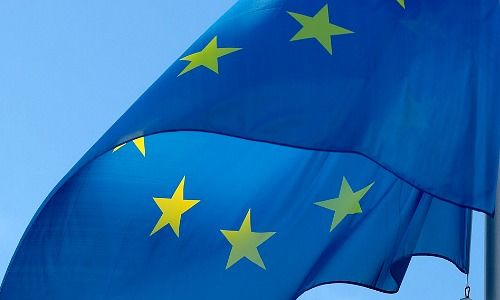Switzerland's bankers are wringing their hands over market access to the European Union. In fact, the Swiss industry has long arranged itself without it.
The «level playing field» versus foreign competitors is the Swiss Banking Association's mantra (position paper available in German or French only): the alpine nation's finance lobby has led calls for market access in the European Union for years.
As the bigger question of Switzerland's overall relationship with the EU comes into focus, the banking lobby renewed its calls in a position paper on Wednesday: in short, market access in the bloc isn't simply a «nice to have» accessory, but a necessity for Swiss private banks and wealth managers. Clients from the EU hold roughly $1 trillion managed in Switzerland, which translates to roughly 20,000 employees and tax income of roughly $1.5 billion, according to the lobby's calculations.
Secrecy vs Performance
This hefty volume is in peril, the lobby argues: EU regulation is too restrictive, and Switzerland adopts most of the bloc's laws governing banking services from third countries (Norway, Iceland, Liechtenstein as well as Switzerland).
Clients are another matter: if the older generation was frequently drawn to Switzerland because of banking secrecy, a younger generation of potential clients is more interested is performance than hiding money. This makes personal ties and digital channels more important than in the past, the lobby argues.
Illusions of Wider Pact
Swiss banks have their hands tied on both, because it hasn't clinched an overarching finance agreement with the EU. This means that market participants who want to pitch to European clients must open a branch in the EU – or wait until clients from Europe travel to Switzerland on their own initiative.
The debate for market access has carried on for years with little progress – a state of play that countless Swiss wealth managers have simply arranged themselves with. Most big banks and asset managers have a branch somewhere in Europe in order to clinch the coveted passport.
Eased Market Access
Even smaller ones like Reuss Private have made the costly move abroad. Others like Reichmuth & Cie or Maerki Baumann have applied for and received simplified access to Germany offered by financial regulator Bafin.
Even after securing the EU-wide passport, national laws in member states still come into play. Swiss hopes for a wider framework agreement to open every door in Europe have clashed with the reality in banking, Banque Cantonale de Geneve CEO Blaise Goetschin told finews.ch (in German only) in 2017.
Equivalency, But...
This hasn't stopped the banking lobby in Switzerland from continuing to seek a framework which would govern banking services, wealth management, and investment advice. The politics should be taken out of the current equivalency regime between Switzerland and the bloc and the matter quickly addressed and resolved, the position paper urges.
Finance firms interested in a workable form of market access to potential EU clients should get it, without Swiss banking having to write the bloc's rules into law verbatim. The lobby also wants the current equivalency regime between the two improved.
The demands by Swiss bankers have a catch, as the lobby admits: Switzerland and the EU need to agree an institutional framework first.




































